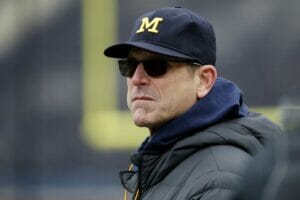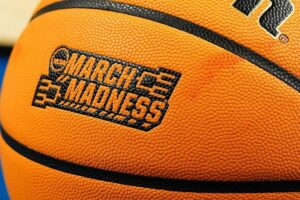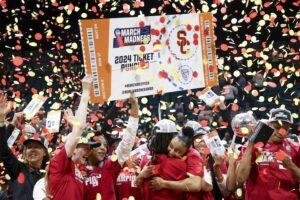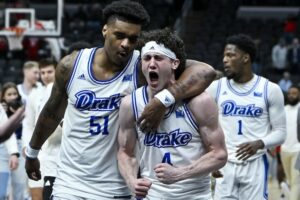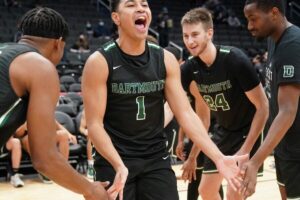NCAA Commissions Athlete Abuse Study, Angry Sports Bettors Included
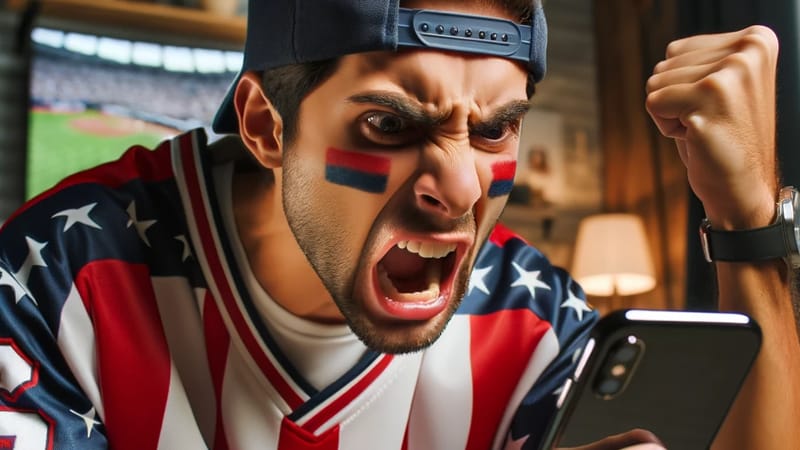
The National Collegiate Athletic Association has embarked on a new study to understand and mitigate the impact of online abuse against student-athletes.
Partnering with Signify Group, the NCAA aims to use a Threat Matrix, AI-based solution to analyze and track online messages directed at student-athletes.
The study will also look to understand exactly how much online abuse aimed at athletes mentions sports betting interests.
“Engaging Signify to monitor NCAA championships reflects our resolute commitment to college athlete safety and well-being,” said NCAA President Charlie Baker in a press release.
“This is a first-of-its-kind project in college sports focusing on online abuse and threats, while arming social platforms and law enforcement to take action to protect thousands of student-athletes and all championship participants.”
Understanding the Scope of Online Abuse
Despite occasionally being a big topic in U.S. media in 2023, only one state has taken decisive action. Regulators for sports betting in Ohio were granted powers to ban bettors who are found to have been abusive from accessing online and retail sportsbooks in the state.
It could be that the lack of concrete action from lawmakers and regulators means that the exact data is unclear, and therefore, so are potential paths forward.
This study from the NCAA aims to change that.
It will scrutinize social media platforms like X, Instagram, and TikTok to monitor and detect levels of abuse and threats towards athletes. This analysis will cover more than 35 languages, including images and emojis.
Earlier in 2023, we reported on a previous NCAA study that said 10% of Division I respondents are aware of student-athletes being harassed, either online or in-person, by individuals with gambling interests.
Collaboration for Protection
Signify Group’s engagement in this initiative extends to coordinating with social media platforms to report and remove abusive content.
Additionally, they will establish reporting procedures to inform stakeholders, such as sports teams and law enforcement agencies, about detected abuse.
By understanding the patterns and prevalence of online abuse, the NCAA aims to refine its policies and strategies to effectively deter such behavior.
The initiative sets a precedent in the realm of college sports, signaling a more proactive and data-driven approach to safeguarding the mental and emotional well-being of student-athletes.
“This pilot is just the start of much broader online protection measures the NCAA will put in place to guide our longer-term strategy in this crucial space,” Baker said.
Changing Ecosystem
Jonathan Hirshler, CEO of Signify Group, also spoke on the project.
“We are delighted to be working with the NCAA on this hugely exciting and ground-breaking initiative to enhance the online safety of college athletes and participants in the wider college sport ecosystem,” he said.
This heightened awareness of pressures from gambling on athletes, particularly student athletes, comes at a time when U.S. sports betting and sports organizations are moving closer together than ever.
The NFL now has a slot game. DraftKings has official NBA merch. Sports media giant ESPN has a sportsbook.
Perhaps most revealingly, in the upcoming North Carolina sports betting market, launching in 2024, operators will literally be required to partner with a sports organization in the state.
However, as well as abuse or distraction from angry bettors (such as happened to top golfer Max Homa during the PGA Tour this year), this could have also caused another problem.
Namely, athletes themselves getting involved in sports betting.
Several college football players were suspended for joining the Iowa sports betting market despite being underage, and a dozen NFL athletes have been suspended on betting violations over the year.
College football betting is big business in the U.S, now that it is legal in many states. September 2023’s NCAA Division I ballgame between the Colorado Buffaloes and the Nebraska Cornhuskers took in more bets than any game of the NFL’s opening weekend.







